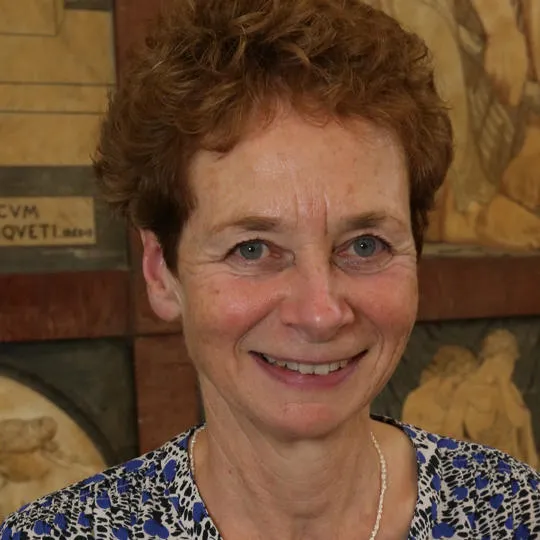Winning the Sir John Neale Prize has been an enormous boost in the final year of my PhD, both financially and in terms of morale. I am so grateful to the IHR and its selection panel, as well as everyone who's supported me intellectually, financially, and emotionally in this achievement. With so much fantastic work being done by postgraduates and ECRs on Early Modern Britain, I was honoured to be selected. I would encourage any Early Modern Postgrad to give it a go; it really helps you focus on producing a journal-worthy article and getting your work out there."
Sarah Johanesen
17 July 2019
Achievements in the Department of History
History Department recognised by the Institute of Historical Research and the Royal Historical Society.
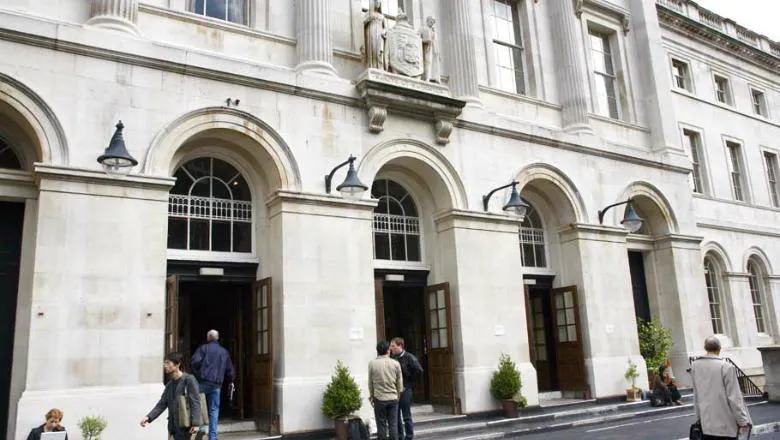
Sarah Johanesen, a postgraduate student in the Department of History at King's College London has been awarded the Sir John Neale Prize by the Institute of Historical Research for her outstanding essay called That silken Priest: Catholic disguise and anti-popery on the English Mission (1569-1640).
The prize is awarded annually to a historian in the early stages of his or her career for an essay in Early Modern British History. For her achievement, Sarah will receive a £1,000 reward to support the development of her scholarly career, as well as a £500 grant towards conference attendance and organisation and research costs. Sarah's paper will be published in Historical Research next year.
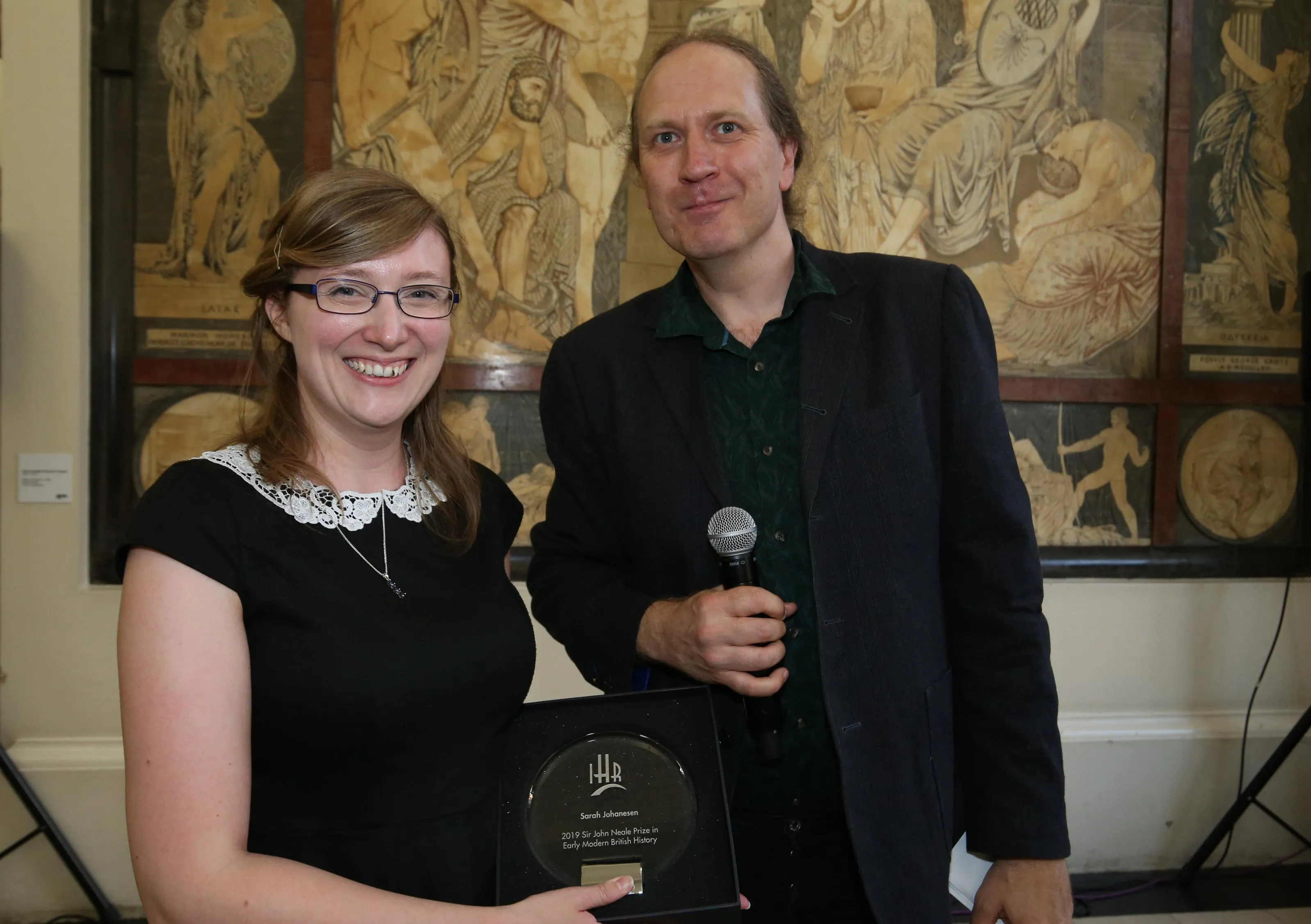
Photo by John Deehan for the Royal Historical Society (Sarah Johanesen)
The IHR also acknowledged Helen Esfandiary, who won the Pollard Prize for her paper at the Life Cycles seminar on Maternal Obligations and Knowledge of Smallpox Inoculation in Eighteenth-Century Elite Society. The prize is awarded annually for the best paper presented at an IHR seminar by a postgraduate student.
Helen's paper forms part of her broader research project. Her thesis Maternal Perspectives on the Preservation of Children's Health and Wellbeing in Eighteenth-Century Elite Society is a reappraisal of child-rearing practices (diet, exercise, clothing, posture, medication, disease prevention) amongst aristocratic mothers during the Eighteenth Century.
As prize-winner, Helen's paper will be published in the prestigious IHR journal, Historical Research, and she will win £200 worth of Blackwell books.
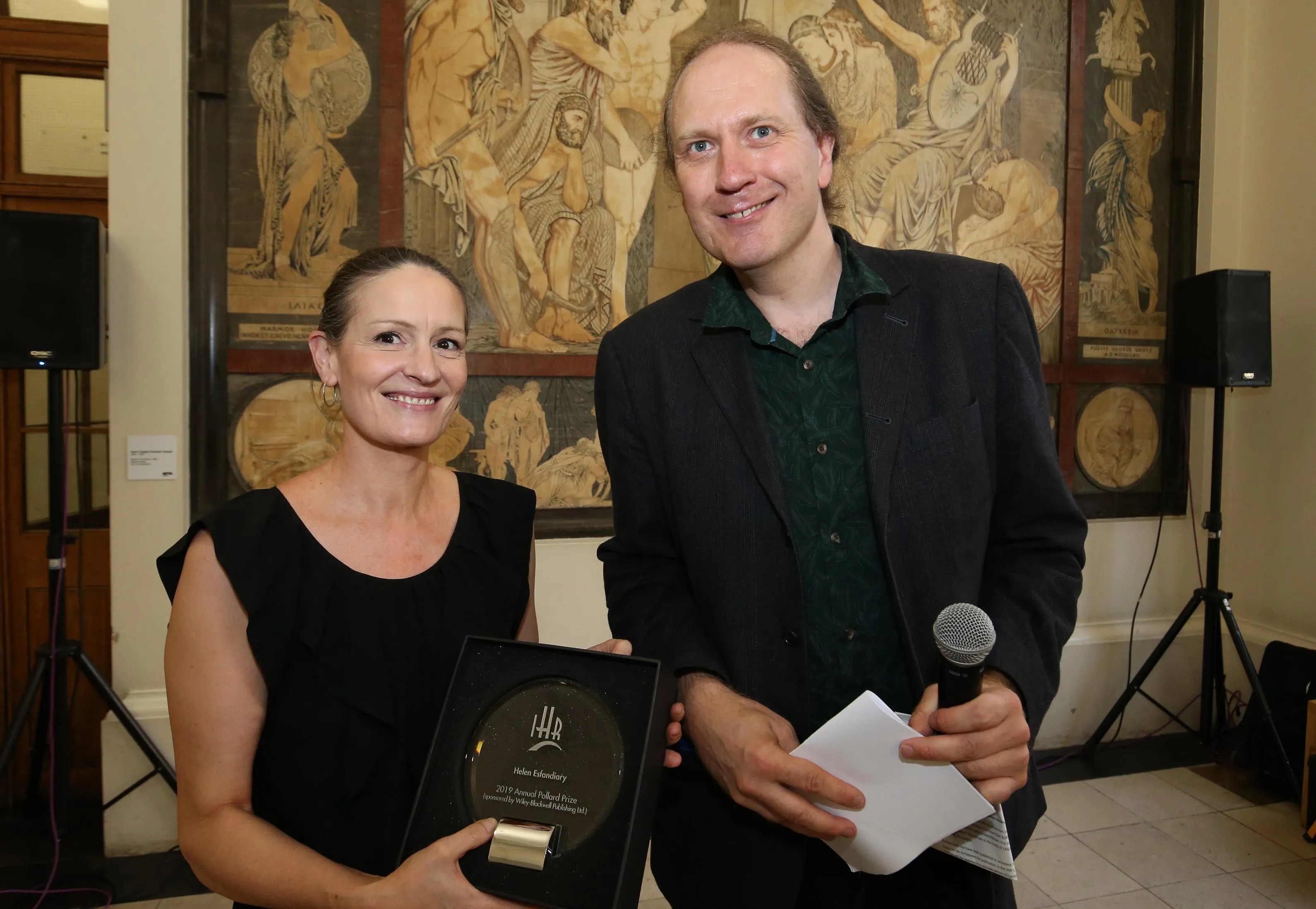
Photo by John Deehan for the Royal Historical Society (Helen Esfandiary)
Another achievement for the Department of History is Julia Crick's (Professor of Paleography and Manuscript Studies) recent victory at the Royal Historical Society. Professor Crick was among one of the two winners to have won an award for the teaching of History at a UK university. She was awarded the Jinty Nelson Award for Inspirational Teaching and Supervision for her exceptional contribution to the field.
The prize is conferred to those with a sustained commitment to the supervision of young historians at both postgraduate and undergraduate level, and Professor Crick will be the recipient of a £1,000 cash prize in recognition of her teaching excellence.
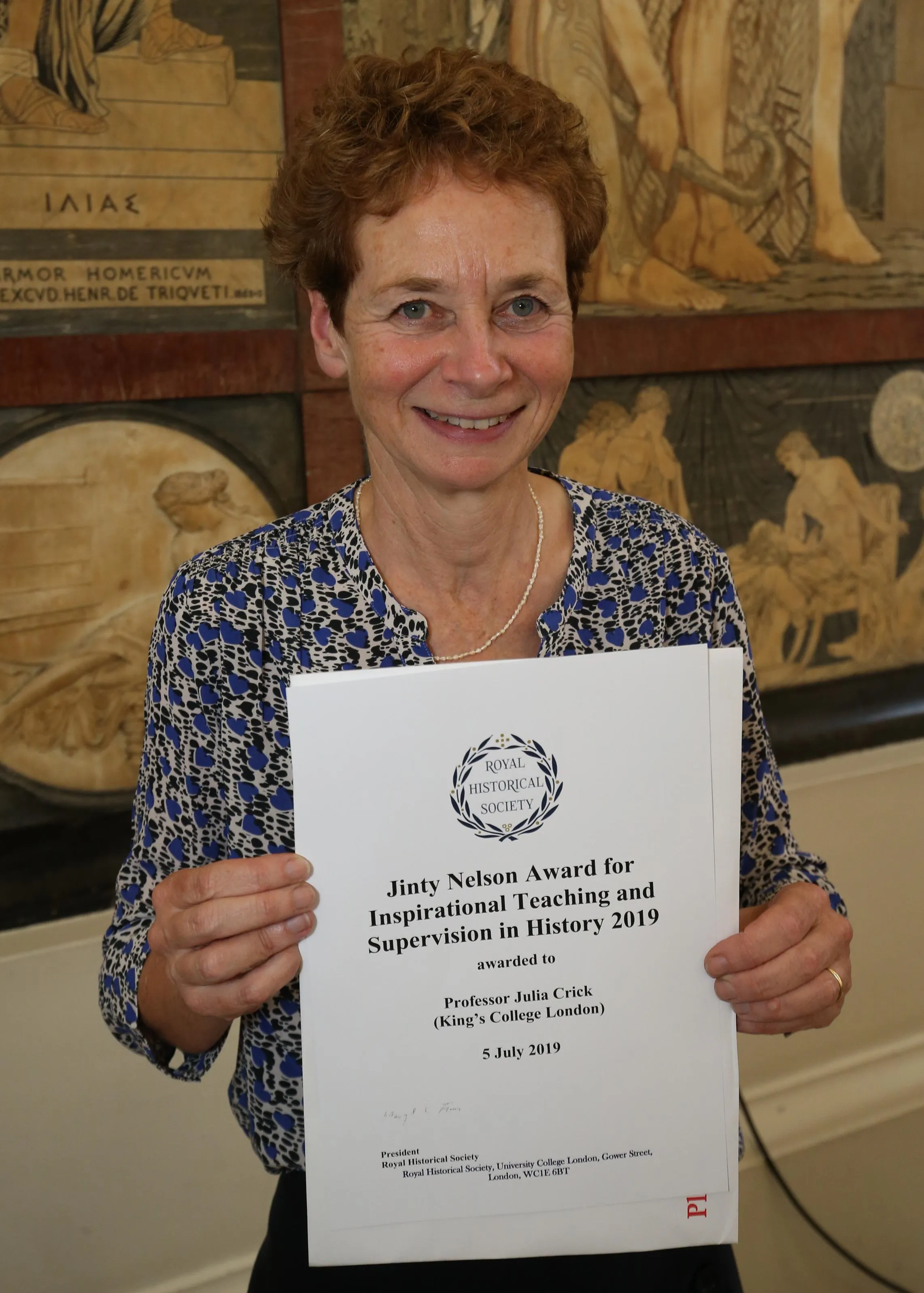
Photo by John Deehan for the Royal Historical Society (Professor Julia Crick)
Teaching people how to ask questions is one of the most important things that historians do. Jinty Nelson, a King’s historian who has influenced generations of students through her exceptional teaching and mentorship as well as through her published work, has always asked good questions. Jinty was the first female president of the Royal Historical Society, and I was delighted that an award was inaugurated in her name last year – I never expected to be a recipient! I research and teach in an area of the same discipline as Jinty, in an area which is technical, but fundamental to the renewal of our research questions, and yet plagued by casualisation. This award is a wonderful boost to our collective work."
Professor Julia Crick

